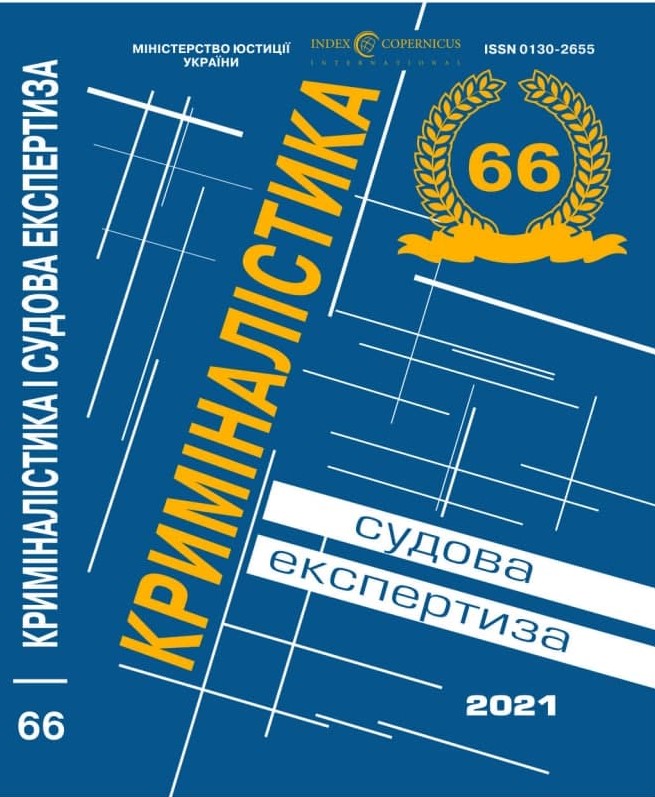
DOI: https://doi.org/10.33994/kndise.2021.66.50
L. Svyrydova
At the stages of preparing materials for conducting a forensic linguistic examination and in the process of research, problematic issues of a procedural and methodological nature arise, which are debatable due to the lack of regulation and the absence of systematic scientific theoretical research in the field of linguistic examination. The analysis of expert practice indicates the need for further developments in the field of forensic linguistic expertise, based on which the author makes proposals for improving the methods of authorship research and the development of directions for further research in the field of semantic and textual research. The author focuses on the need to carry out developments in the field of linguistic expertise, taking into account not only the current practice of conducting forensic linguistic expertise. Also taking into account the generalization of new literary sources, the number of which is increasing and the data of which are of interest to linguistic expertise from the point of view of analyzing emerging in the field of modern linguistics problems, as well as the socio-political situation in the country.
Attention is drawn to the fact that the judicial and investigative authorities appoint linguistic examinations at almost all stages of the consideration of cases/proceedings or the investigation of offenses, and it is also becoming increasingly popular in connection with the appeals of individuals/legal entities. The data of the conducted research can serve as the basis for the creation of new directions of research in the field of forensic linguistic examination and contribute to the development of its theoretical and methodological foundations.
Key words: linguistic expertise, authorship research, semantic-textual research, creolized (polycode) texts, complex research.










